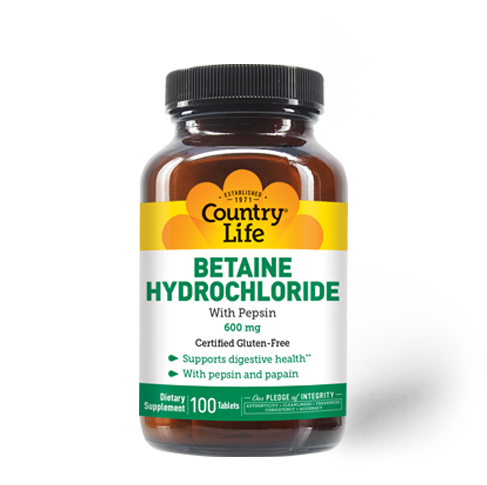Discover the Key to Food Digestion and Immunity With Digestive Tract Health And Wellness Support

Recognizing Gut Health
Recognizing digestive tract health is critical for general health, as it plays a considerable function in food digestion, resistance, and even mental wellness. The gut, consisting of the gastrointestinal tract, is accountable for damaging down food, soaking up nutrients, and removing waste. A well balanced intestine setting makes sure efficient food digestion, permitting the body to make use of nutrients successfully.
Furthermore, digestive tract wellness significantly affects the body immune system. The intestine houses a significant part of the body's immune cells, and a healthy and balanced intestine can help repel virus and minimize swelling. Interruptions in gut health can result in an overactive immune action, potentially adding to autoimmune problems and allergic reactions.
In addition, the gut is frequently referred to as the "second brain" because of the gut-brain axis, a complicated interaction network connecting the mind and the intestine. This link affects state of mind, cognition, and psychological wellness. Problems such as dysbiosis, characterized by an imbalance in gut bacteria, have been related to psychological wellness conditions, including anxiety and anxiety.
The Gut Microbiome Explained

The gut microbiome, a varied community of microorganisms staying in the stomach tract, plays a critical role in maintaining gastrointestinal health and total wellness. Comprising trillions of bacteria, infections, fungis, and various other microorganisms, this complex ecological community help in the digestion of food, the synthesis of crucial nutrients, and the policy of metabolic processes.
Each person's digestive tract microbiome is unique, affected by elements such as diet regimen, way of living, genetics, and ecological exposures. A well balanced microbiome supports optimum digestion by damaging down complicated carbs, generating short-chain fatty acids, and facilitating the absorption of nutrients. On the other hand, an imbalance, often described as dysbiosis, can lead to digestive system disorders, consisting of irritable digestive tract syndrome (IBS) and inflammatory digestive tract disease (IBD)
Study has shown that a varied microbiome is connected with better health and wellness end results, highlighting the relevance of dietary options in supporting these bacteria. Foods abundant in fiber, probiotics, and prebiotics, such as fruits, vegetables, and fermented products, can advertise a healthy and balanced microbiome. Understanding the digestive tract microbiome is essential for establishing targeted treatments aimed at enhancing digestion health and avoiding gastrointestinal illness.

Link Between Food Digestion and Immunity
A additional info durable connection exists in between food digestion and immunity, highlighting the critical function of the intestine in keeping overall health and wellness. The gastrointestinal tract is home to trillions of microbes that form the digestive tract microbiome, which considerably affects both gastrointestinal procedures and immune responses. This complicated environment help in damaging down food, absorbing nutrients, and supplying crucial metabolites that support immune function.
When food digestion is reliable, the intestine obstacle stays intact, preventing hazardous pathogens from going into the blood stream. Roughly 70% of the immune system resides in the gut-associated lymphoid cells (GALT), which connects carefully with the gut microbiome.
Tips for Supporting Intestine Wellness
Sustaining gut wellness click to read is important for keeping both digestive performance and a well-functioning body immune system. To cultivate ideal gut wellness, think about incorporating a number of practical methods into your everyday routine.
First, prioritize hydration. Drinking ample water supports food digestion and helps preserve the mucosal cellular lining of the intestines. In addition, normal physical task can boost digestive tract mobility and promote a diverse microbiome.
Conscious eating practices are likewise important. Eating food thoroughly and eating gradually can assist digestion and stop over-eating, which may emphasize the gut. Taking care of stress with methods such as reflection, yoga exercise, or deep-breathing workouts can positively affect intestine wellness, as stress and anxiety is known to disrupt gastrointestinal processes.
Including prebiotics and probiotics into your regimen is another effective method. While particular foods will be gone over later, recognizing the relevance of these parts is crucial. Prebiotics act as food for advantageous digestive tract germs, while probiotics introduce real-time useful organisms.
Finally, avoid excessive use of anti-biotics, as they can interfere with the equilibrium of digestive tract flora. By adhering to these suggestions, you can substantially contribute to the maintenance of a healthy and balanced intestine, which is essential for total wellness and vitality.
Foods That Promote Gut Wellness

Fermented foods, such as yogurt, kefir, kimchi, and sauerkraut, are abundant in probiotics, which are valuable bacteria that support gut vegetations and boost food digestion. These foods can assist bring back balance in the intestine, index specifically after antibiotic usage or digestive system disruptions.
Along with fermented options, prebiotic foods, such as garlic, onions, asparagus, and bananas, work as sustenance for these probiotics, advertising their growth and task. These soluble fibers sustain digestive tract motility and can alleviate concerns like irregular bowel movements.
Furthermore, integrating high-fiber foods, including entire grains, fruits, veggies, and vegetables, is vital for maintaining a healthy and balanced digestive tract. Fiber help in routine bowel activities and helps stop gastrointestinal problems.
Last but not least, omega-3 fats found in fatty fish, flaxseeds, and walnuts have anti-inflammatory buildings that can additionally support gut health. Highlighting these foods in your diet can cause a robust gastrointestinal system and boosted immune function.
Verdict
In verdict, prioritizing gut health and wellness is important for enhancing food digestion and boosting resistance. A well balanced intestine microbiome, affected by dietary options and way of life variables, plays a crucial role in nutrient absorption and inflammation reduction.
Understanding gut health is crucial for general wellness, as it plays a considerable function in digestion, immunity, and even mental health. The intestine houses a substantial part of the body's immune cells, and a healthy and balanced digestive tract can assist fend off pathogens and decrease inflammation.Additionally, the intestine is frequently referred to as the "second brain" due to the gut-brain axis, a complex interaction network connecting the digestive tract and the brain.A durable link exists in between digestion and resistance, highlighting the critical duty of the digestive tract in preserving overall wellness.In verdict, focusing on digestive tract health is essential for maximizing food digestion and enhancing resistance.